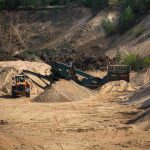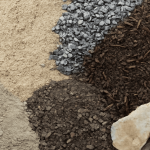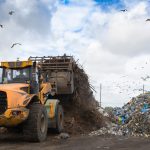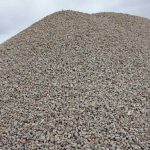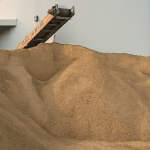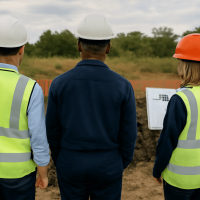Across Western Australia, sustainability is no longer an afterthought—it’s the foundation of responsible infrastructure development. From major road projects to residential subdivisions, the shift toward environmentally conscious construction materials has become essential. Among the most impactful innovations are sustainable road base and fill sand solutions, which support both environmental goals and structural reliability.
At the forefront of this transformation is Peel Resource Recovery, a company dedicated to delivering high-quality, eco-friendly materials that meet the needs of Western Australia’s growing infrastructure sector. Their work highlights how recycled resources can replace traditional quarry materials without sacrificing strength, safety, or performance.
This article explores how sustainable road base and fill sand are driving positive change across Western Australia, what makes these materials environmentally responsible, and why they are vital to achieving long-term sustainability goals.

The Growing Importance of Sustainable Materials in Western Australia
Western Australia’s booming construction and infrastructure sectors rely heavily on aggregates, sand, and fill materials. Traditionally, these materials come from quarrying and mining—practices that consume vast natural resources and often cause significant environmental disruption. As the state continues to expand, the demand for sustainable alternatives has become more urgent than ever.
Sustainable materials such as recycled road base and fill sand offer a solution that aligns with both environmental and economic priorities. They minimize waste, reduce the need for virgin materials, and support the circular economy—a model where waste is continuously repurposed into valuable resources.
The Government of Western Australia has long encouraged the adoption of recycled construction materials as part of its waste avoidance and resource recovery strategy. This initiative aims to cut landfill usage and carbon emissions, while promoting local industries that contribute to a greener economy. For example, the Department of Water and Environmental Regulation (DWER) continues to emphasize sustainable waste management as a key factor in protecting the environment and ensuring resource security for future generations.
By choosing sustainable materials, Western Australian contractors, engineers, and developers not only meet these regulatory goals but also demonstrate corporate responsibility and leadership in environmental stewardship.
What Makes a Road Base Sustainable
A road base forms the foundation of any road, driveway, or paved surface. Traditionally, it consists of crushed stone or gravel sourced from quarries. A sustainable road base, however, is produced using recycled aggregates derived from construction and demolition (C&D) waste such as crushed concrete, asphalt, and masonry.
The process begins with sorting and cleaning the recycled materials to remove impurities. These materials are then crushed and screened to meet specific size and compaction standards. The result is a road base that performs on par with, or even better than, traditional aggregates.
Sustainable road base offers several key advantages:
Resource Conservation – By reusing existing materials, it reduces the demand for new quarry extractions and helps preserve natural landscapes.
Lower Carbon Footprint – The recycling process consumes less energy compared to quarrying and transporting virgin materials.
Cost Efficiency – Recycled aggregates often come at a lower cost, offering savings for contractors without compromising quality.
Regulatory Compliance – Increasingly, public projects in Western Australia require the inclusion of recycled content to meet sustainability criteria.
With modern testing and quality control, sustainable road base materials meet stringent engineering requirements, making them suitable for highways, industrial roads, and residential developments alike.
The Role of Fill Sand in Sustainable Construction
Fill sand plays a crucial role in construction, providing support and stability for building foundations, pipelines, and landscaping projects. However, natural sand extraction can lead to erosion, loss of biodiversity, and damage to river ecosystems. Sustainable fill sand addresses these issues by offering an environmentally friendly alternative that performs just as effectively.
Sustainable fill sand can be produced from cleaned and processed recycled materials or sourced from sustainable local supplies. Its key benefits include:
Reduced Environmental Impact – By recycling or responsibly sourcing sand, the demand for riverbed and dune excavation is minimized.
Excellent Compaction and Drainage – Properly graded fill sand ensures solid compaction and good drainage performance for long-lasting results.
Versatile Applications – It can be used in trench filling, leveling, landscaping, and as a sub-base material for roads and buildings.
Support for the Circular Economy – Reusing construction by-products turns waste into valuable material, aligning with Western Australia’s sustainable development goals.
In Western Australia’s climate, where soil conditions vary widely from coastal regions to inland developments, having access to high-quality, sustainable fill sand ensures consistent performance and long-term project success.
Environmental and Economic Benefits of Sustainable Road Base and Fill Sand
Sustainability is not only about protecting the environment—it also brings measurable benefits to the economy and local communities.
1. Reducing Landfill Waste
Construction and demolition waste make up a large portion of landfill content in Western Australia. Recycling this waste into usable road base and fill sand diverts thousands of tonnes from disposal each year. This reduces landfill pressures and extends the life of existing waste management facilities.
2. Lower Greenhouse Gas Emissions
Producing recycled materials typically requires less energy than quarrying, crushing, and transporting virgin resources. This translates to a measurable reduction in CO₂ emissions—helping the state move closer to its carbon neutrality targets.
3. Boosting Local Employment
Sustainable material processing supports regional recycling facilities, creating jobs and stimulating local economies. Companies like Peel Resource Recovery contribute to this by investing in modern recycling technologies and skilled labor.
4. Supporting Public Sustainability Goals
Using recycled materials aligns with state and national sustainability initiatives, reinforcing Western Australia’s reputation as a leader in resource recovery and environmental responsibility.
The combined environmental, economic, and social advantages make sustainable road base and fill sand an indispensable part of the future of infrastructure across the state.
Peel Resource Recovery: Leading the Way in Sustainable Construction Materials
Peel Resource Recovery has earned recognition as a trusted provider of recycled construction materials across Western Australia. Their mission is to transform construction and demolition waste into high-quality products that serve as reliable, cost-effective, and environmentally responsible alternatives to traditional materials.
The company specializes in producing sustainable road base, fill sand, and other recycled aggregates that meet the exacting standards required for civil, commercial, and residential projects. Each product is rigorously tested for compaction, gradation, and moisture content to ensure durability and performance.
Beyond providing materials, Peel Resource Recovery plays a key role in advancing Western Australia’s circular economy by:
Diverting waste from landfills through efficient recovery and reprocessing systems.
Reducing carbon emissions by using advanced crushing and screening technologies.
Collaborating with local governments and industry to develop sustainable infrastructure solutions.
By integrating sustainability into every aspect of its operations, Peel Resource Recovery demonstrates that environmental responsibility and industrial performance can go hand in hand.
Western Australia’s Path Toward Circular Construction
Western Australia has set a clear path toward a circular economy, where materials are reused and recycled for as long as possible. The construction sector is central to this transformation, given its significant material consumption and waste generation.
Initiatives by both government and private sectors aim to increase the use of recycled products in civil works, roads, and building projects. By embracing sustainable road base and fill sand, contractors and developers contribute to reducing waste, conserving resources, and fostering innovation.
As awareness grows and technology evolves, the barriers to using recycled materials continue to fall. Modern processing ensures consistent quality and compliance with Australian engineering standards, giving stakeholders confidence in their performance. The result is a more resilient, efficient, and environmentally friendly construction industry that benefits both people and the planet.
Future Outlook: Building a Greener Western Australia
The future of infrastructure in Western Australia depends on our ability to balance growth with sustainability. As population and urbanization continue to rise, so does the need for long-lasting, eco-conscious materials. Sustainable road base and fill sand are more than alternatives—they are essential components of responsible development.
Advancements in recycling and resource recovery technology will only enhance the quality and availability of these materials. Companies like Peel Resource Recovery are expected to play an even greater role, setting new benchmarks for innovation, safety, and sustainability in construction supply chains.
With continued support from the government, industry, and the community, Western Australia can lead the nation in sustainable building practices. Choosing recycled materials today means building a legacy of efficiency, resilience, and environmental respect for tomorrow.
Conclusion
Sustainability in construction is not an option—it’s an obligation. The use of sustainable road base and fill sand is a tangible way to reduce environmental impact, lower costs, and promote responsible development across Western Australia.
Through the dedication of companies like Peel Resource Recovery, recycled materials are proving to be just as reliable and durable as traditional ones—while helping protect our planet’s future.
As Western Australia continues to invest in greener infrastructure, these sustainable solutions will form the backbone of its progress—building not just roads and foundations, but a more sustainable future for generations to come.


